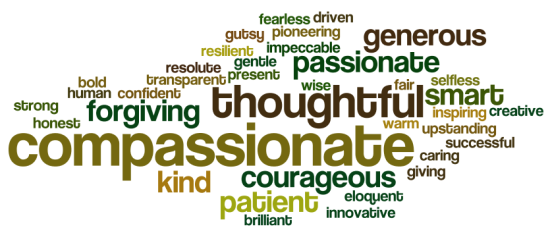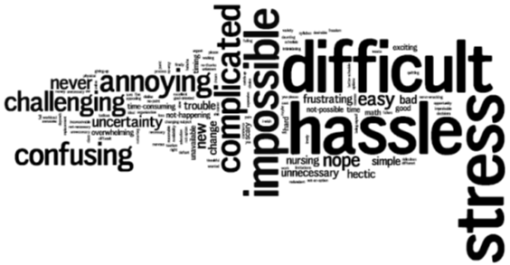Have you ever counted the number of times you hear “awesome” and “sucks” in a single day? When I was managing staff in a clinical laboratory and needed to take some “corrective action” (terminology my Human Resources Department preferred) with an employee, I could plan on hearing those tired, gnawed-to-the bone superlatives at least once if not numerous times. I recall interrupting the discussion when these pooped-out phrases popped up stating, “Please think of a better word to describe your feelings about that… (Insert topic or person or incident).”
She’s awesome!

Usually there was a somewhat lengthy pause and I could see the wheels turning inside my employee’s head thinking, “My boss is telling me this? How can she not know I use only the coolest, hottest, most hip, jiving words on the planet?” Then eventually we’d arrive at a set of useful alternative nouns, verbs, and adjectives that adequately, sometimes superbly, described the situation.
I think the same is true in writing. It is easy to fall into habitual word repetition without realizing that one’s creative brain cells have taken a permanent holiday. Wouldn’t using words like bedazzling, beguiling, or born-brilliant say so much more about a particular subject? Or even creating a new moniker like fabuloso, metafab, or even uberfab grab a listener’s attention?
sucks

So pull out your trusty Thesaurus and look for alternatives. But don’t stop there; investigate the subtle shades of meaning that will lead you to the perfect word. My edition of The International Roget gives me a number of substitutes for awesome: astonishing, eminent, large, sacred, terrible, and venerable. “Astonishing” implies the mysterious, the bizarre, almost bordering on weird, quirky while “large” connotes immense, infinite, even monstrous. So just what do you mean? Do you want to describe a positive sense of charm? or a negative level of oddity? Perhaps queer – which can have an entirely different connotation depending on the topic. Is your subject massive versus inspiring? And what about the actual sound of the word when pronounced? Bizzare has a bitting, buzzing sound while quirky adds a bit of fun. And soothing words like “coo” slow things down while hard consonants speed things up.
I wasn’t an English major in college but I do know the power of words and which ones, when carefully chosen, can convey to a boss just how you feel about that… (insert topic or person or incident)…to get your head-turning, bone-brilliant point across.